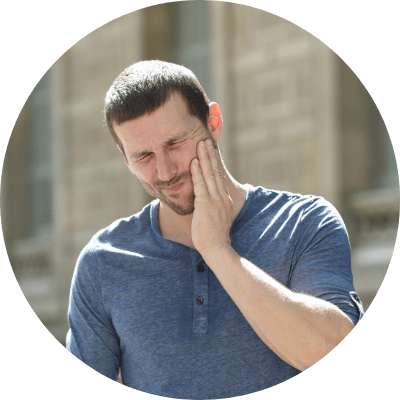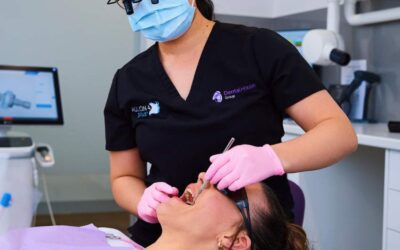Take A Breath. Just Not Through Your Mouth
Take A Breath. Just Not Through Your Mouth

In all that space that’s in between, we’ll take many. Long ones, deep ones; loud, shallow and whispered ones. We will have experienced the shock of speedy suffering when there’s a rapid shortness of it.
If we’re lucky, we’ll have had it taken away a few times and never in a way requiring chemical or mechanical ventilation.
At some point, we will have gasped for it, lost it, held it and squeezed the drops of it; each time a reminder of how incredibly, indelibly and insentiently captive we are to our ability to breathe.
In moments of distress or trauma we forget how to do it.
Without it for less than a minute and we’re unconscious. After a minute, brain cell death occurs. After three minutes, lasting neuron damage takes place; the end of life is altogether imminent after five.
Of course there are exceptions.
Freedivers, for one.
Nine minutes without oxygen on average. The record is 24 minutes, 37 seconds. Held by Croatian Budimir Šobat.
Literally.
Phallic rocket-rider Jeff Bezos was in space for less than half that time and it took people’s breath away.
Šobat took his own breath away for precisely 14 minutes and 27 seconds longer than that – such a substantial, and singular human feat – and it seemingly amounted nothing very much. Three generations ago he would have at least been held aghast by the tens-of-thousands flocking to see this half-man-half-fish of Ringling Bros and Barnum & Bailey.
How easily we’re no longer astounded by the simply astounding.
Complicated astounding is what we’re wired for now. Science and technology. It keeps us questioning complexity and avoiding the most complex simple science of all – the here and now of living.
It’s no wonder the simple art of breathing barely gets a look in amid bucket lists, emotional escape rooms, micro workouts and biohacking. Like the internet, breathing is one of those things you don’t fully appreciate until it’s not there.
How amazing it is that we breathe at all. How we do it – even more fascinating.
A recent study in the Journal of Neurophysiology documented the activated brain regions linked to emotion, attention, and body awareness when attention is paid to the length, depth and rhythm of the breath.
Paced breathing involves consciously inhaling and exhaling to a set rhythm. Inhaling for four, exhaling for six, for example. Earlier research had shown paced breathing regulates the nervous system and focuses attention; there was, however, little known about the effect on brain function.
These recent findings break through the long-standing scientific certainty that the brain stem is responsible for the process of breathing.

Supplying oxygen to the body this way actually prepares the air for the lungs.
So as your parents might say, though you never listened, don’t breathe through your mouth.
Nasal hair and mucus filters, warms and moistens the air prior to it entering the sinuses. It’s here that nitric oxide is synthesised. Nitric oxide kills microbes (like viruses) and helps blood vessels in the lungs dilate so that more oxygen can be absorbed.
Breathing through the mouth actually causes changes in the jawline and facial structure. It modifies positions of the teeth, and is a phenomenon that was first observed in the early 20th century.
The progression since then, is continuing evidence that breathing through the mouth results in craniofacial dystrophy.
Chronic ailments like asthma and allergies in children change the growth pattern of their face. Healthy faces grow forward, and have a mandible that is straight. Habitual mouth breathing results in a longer, narrower face. It can also change the angle of the forehead because the lower jaw is too recessive. An overbite is created, and there’s crowding of teeth because of the limited jaw length.
There’s also not enough tongue space in the mouth, and a lack of muscle tone to keep the tongue resting on the palate.
So at night, the tongue typically rolls onto the airway, which of course creates snoring: a sign of sleep disordered breathing conditions like obstructive sleep apnoea – also associated with ADHD symptoms.
The more than unfortunate upshot of this, are the children being wrongly prescribed psychoactive drugs in order to control their misdiagnosed ADHD.
The behaviour under scrutiny is actually the result of chronic exhaustion, and a lack of reliable oxygen supply to the brain during sleep. These are children likely to struggle with concentration, never reach their academic potential and be bullied for this, along with their facial disproportion.
It’s a serious problem.
Mouth breathing is associated with poor posture and poor growth patterns in children; and sleep apnoea, malocclusion and systemic health issues in adults. A ‘mouth breather’ has become accepted as shorthand for the stereotype of a low IQ.
To not breathe through the nose with top teeth aligned, lips closed and tongue resting on the roof of the mouth can happen during adolescence and adulthood as well.
A few years ago Youtube crazed itself a new road of obsession with the practice of ‘mewing’.
Although it sounds like it involves a number of cats and some kind of electrical probe, it is in fact the process of keeping the tongue on the roof of the mouth – the maxilla. Named after British father and son orthodontists Drs John and Mike Mew, it is the constant placement of the tongue on the maxilla, which apparently renders this part of the hard palate malleable. This ability to change shape therefore changes the shape of the face.
Seemingly those who mew (and are not cats) adhere to other habits – including a technique known as ‘wave-swallowing’, as well as chewing gum to strengthen jaw muscles.
Proponents of the technique claim to gain desired facial features, including deeper-set almond eyes, more pronounced cheekbones and greater definition of the jawline.
It’s a trend that came at a price.
Dr Mike Mew maintains to have been expelled from the British Orthodontic Society that claims he has a misleading social media presence, citing the scientifically unchartered nature of the orthotropics developed by him and his now 95-year-old father that was originally intended only for young children.
Their papers appear in obscure, fourth-rate journals or profit-driven industry magazines if they’re published at all; while British and American orthodontic researchers discredit almost every claim the Mews have put forth.
Skeptics point out that the alleged benefits of the technique have yet to be substantiated by science, and that any possibility of results would take years to achieve. Still others suspect mewing could be symptomatic of dysmorphia.
Mewing has become a fixation for some. That it’s an unproven technique that’s racked up almost two billion views on TikTok is nothing short of breathtaking.
DISCLAIMER:
The content has been made available for informational and educational purposes only. Melton Dental House does not make any representation or warranties with respect to the accuracy, applicability, fitness, or completeness of the content.
The content is not intended to be a substitute for professional personal diagnosis or treatment. Always seek the advice of your dentist or another qualified health provider with any questions you may have regarding a dental or medical condition. Never disregard professional advice or delay seeking it because of something you have read or seen on the Site.
Services we mentioned:
Related Articles
Red, Red Wine: Is It Beneficial For Oral Health?
Is red, red wine beneficial for our oral health? Or does it just feel good at the time & if you overdo it you feel like cr*p the next morning…
Detecting Oral Cancer Is Given The Brush
In 2020, Oral Cancer accounted for almost 380,000 cases, and 180,000 deaths globally. It’s on the increase with diagnosis incidents…
Could The Surge In Pneumonia In Children Be Related To Their Teeth Brushing?
Kids and teenagers are not self-maintaining, and nor is their oral health. Teeth brushing: spend time with it frequently…
What Is Dental Sleep Medicine? It’s Not Sleep Dentistry
Dental Sleep Medicine is the intersection of dentistry with issues affecting sleep. Snoring, sleep apnoea, & related breathing disorders…













